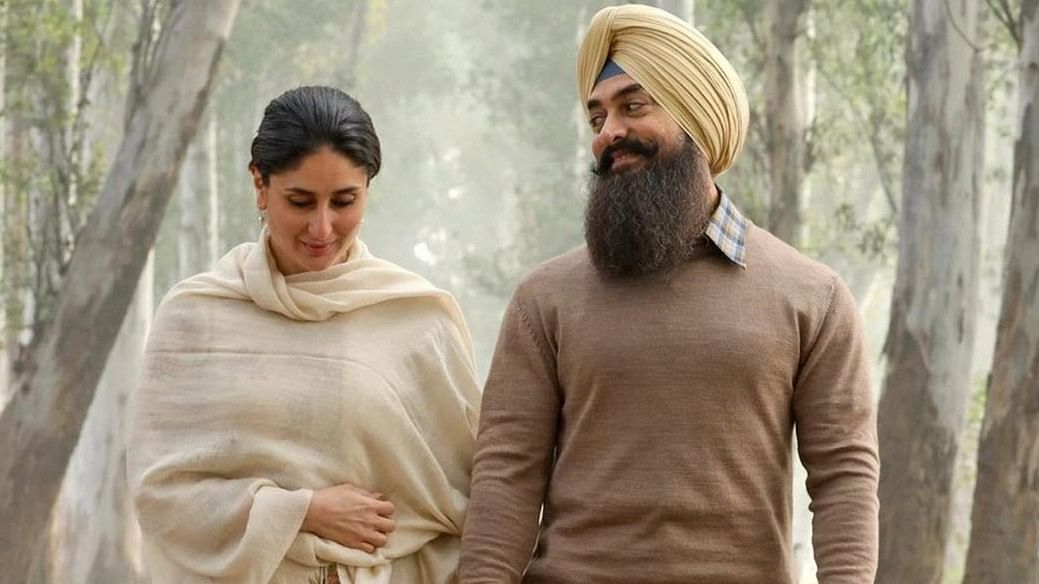
Kareena Kapoor and Aamir Khan in a still from the movie 'Laal Singh Chaddha'.
Credit: Special Arrangement
New Delhi: Ambassador of Turkiye to India Firat Sunel is a fan of Bollywood movies — especially the Aamir Khan-starrer Laal Singh Chaddha — a film the diplomat says he has watched at least four times.
Laal Singh Chaddha, which was an authorised remake of the Hollywood classic Forrest Gump, was 'more successful' than the 1994 original movie starring Tom Hanks, according to Sunel.
The 2022 film received mixed to negative reviews amid boycott calls on social media, something which appeared to have had an impact on its box office business.
"I am a fan of Bollywood movies and my favourite actor is Aamir Khan. Laal Singh Chaddha I have watched this movie at least four times. It is an adaptation of Forrest Gump. But this movie, for me, is more successful than the original one," Sunel told PTI in an interview here.
"When you watch Bollywood movies, you also see the Indian lifestyle and background. You learn so much about India and Indian people, so that's why Bollywood is getting more and more successful," he added.
The diplomat said Laal Singh Chaddha, which was also shot in Turkiye, made him realise about the many similarities between Indian and Turkish culture.
To explain his point, Sunel talked about the opening scene of the movie where the titular hero, played by Khan, travelling in a train is seen offering golgappas to fellow passengers before having it himself.
"This (the scene) is normal for you and me, because it is a tradition. In Turkiye, we also offer food to people who are in proximity before we eat. But when somebody in America watches this movie, they wouldn't understand it," he said.
"They would think because 'He is not a smart boy, that's why he offered the food to other people'. Maybe because I catch so many similarities between our societies is that I feel so interested about the movies here," he added.
Also a bestselling author, Sunel views adaptations as 'risky' business because it comes with a fair share of challenges for the creator who wants to ensure nothing is lost in translation.
"When you write a novel, thousands or tens of thousands people will read it. But if it is adapted into a series or film, then the number increases to millions and even tens of millions. To be able to reach out to more people, it is important that your novel is adapted to a series or movie. But there are losses or changes (in book to screen translations)," he explained. That's why the 58-year-old diplomat said he wasn't '100 per cent' satisfied with the Turkish TV series The Great Exile Caucasia, which was inspired by his novel In the Shade of the Weeping Willows (Turkish title: Salkim Sogutlerin Golgesinde).
"As an author, if you are not ready to accept all the changes, I would suggest you to not do this. When the filmmaker comes on board, your duty (as an author) ends," he added. Even then, Sunel said he wants The Lighthouse Family, the recently released English translation of his Turkish novel Sarpincik Feneri, to be adapted into a movie.
"The Lighthouse Family could be an adaptation even in India. The book relates to Indian families as well. They would like it, this would make for an emotional movie," he said, adding, "Indian audiences, like Turkish audiences, like books or movies when they make them cry and this is one such book. It can be adapted in any country, in India or Western countries. So, if somebody is interested, why not?"
The Lighthouse Family is a heartrending tale set in the backdrop of the Second World War. The beautifully told historical fiction centres around a loving family living in an isolated lighthouse in Turkiye's westernmost tip and ripped apart by the consequences of a war that was not even theirs.